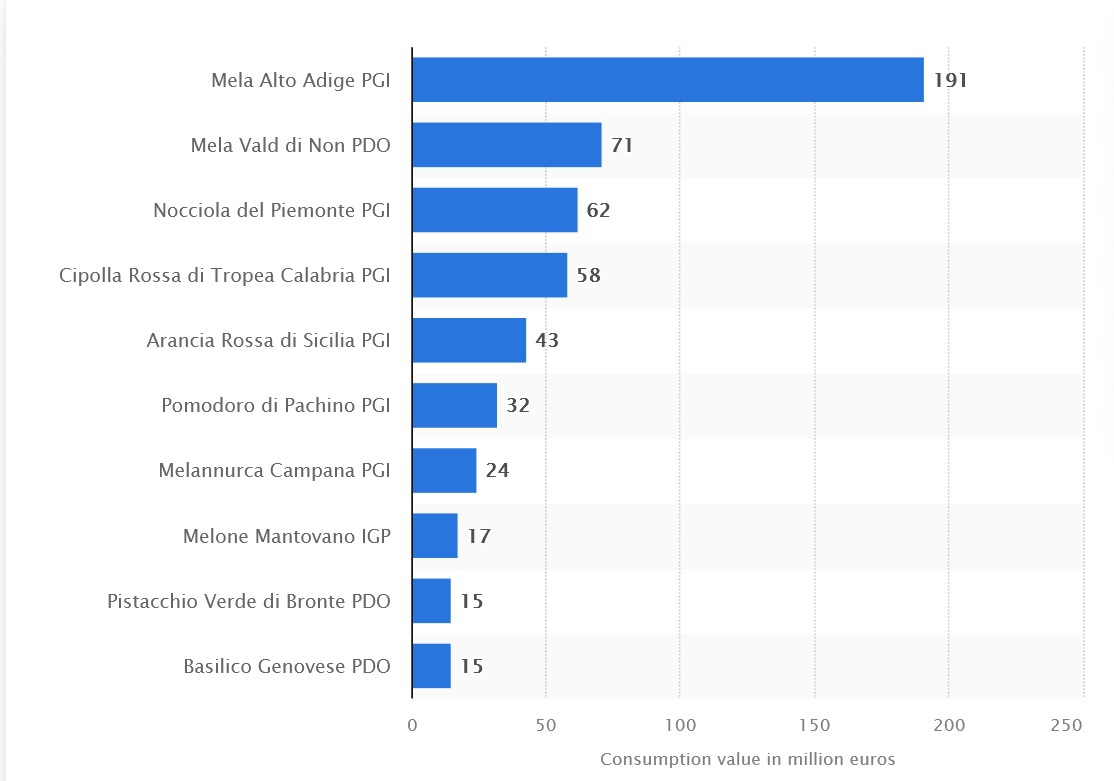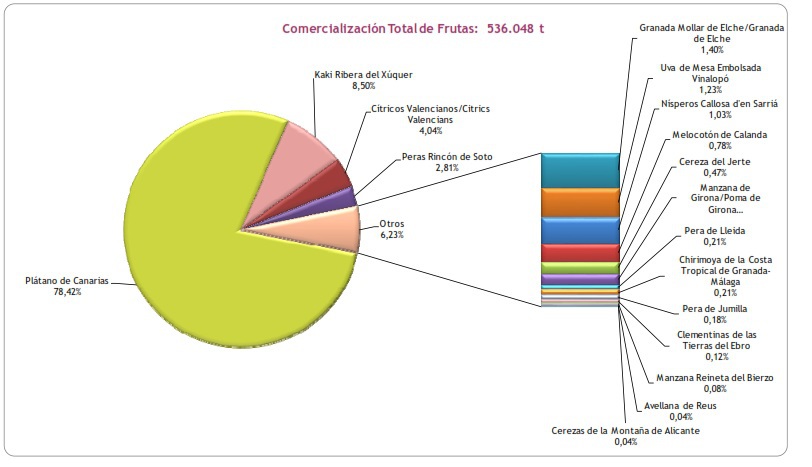Geographical indications fast becoming global
As the global fresh produce industry expands, labels of origin have become key differentiating factors that can certify quality as well as authenticity. In these times of rising food fraud, such guarantees are becoming increasingly important to protect both consumers and producers. A 2018 study in China found that GI (Geographical Indication) labels are as important as brands at instilling consumer trust, which is at a premium during the current pandemic (source: PubMed). There are 456 PDO/PGI registered products in the EU database eAmbrosia (including 67 products from countries outside the EU) in the product class 1.6 (fruit, vegetables and cereals fresh or processed). Of these protected products, 118 are from Italy, with Spain the next largest contributor (62), followed by France (60), Portugal and Germany.
Financial support is required for poorer countries
The EU’s GI economy is worth US$87 billion a year and there’s growing interest in GIs across the world. India has around 200 GIs, while there are over 400 in Central and South America, and the first GIs have been registered in Africa (source: OrigGIn). In poorer parts of the world, GIs are viewed as a means of preserving local know-how, reducing the rural exodus and contributing to social cohesion. However, there is a need for financial and technical assistance to ensure the sustainability of GIs in developing countries. Their capacity to serve as powerful differentiating factors in national and international markets cannot be exploited without adequate financial support for marketing and to complete the filing process.
Valencian citrus fruits turn TV stars
In recent years, Spain’s PGIs have shown how best to harness the power of quality labels. In 2021, PGI Cítricos Valencianos joined forces with Origen España to launch a national television campaign aimed at sensitising consumers about the PDO and PGI European seals so that they can recognise the labels, their meaning and their value. Managing director of PGI Citricos Valencianos Jose Enrique Sanz said: “We view promotion and publicity as fundamental tools for our quality seal, as they allow us to better disseminate the magnificent qualities of the citrus from the Valencian Community.”
Spain has seen its protected foods rise in number from 15 products in 1988 to 202 in 2020. In terms of sales of protected fruits, after more than two decades of constant growth (€39m in 1996 to €498m in 2019 (source: Origen España)), 2020 marked the first annual drop (€488m). Similarly, sales of protected vegetables rose from €14m in 1996 to €91.5m in 2019, before contracting to €75m in 2020. Andalusia and Cataluña are the regions with the highest number of protected fruits and vegetables (5 each). However, in terms of value, the product which generates by far the highest sales is the PGI Canary Islands Banana, which on its own accounts for over 78% of all sales of protected fruits. Next come the Ribera del Xuquer Persimmon (8.5%) and Valencian Citrus (4%). Spain’s exports to the EU of PDO and PGI fruits totalled just under 45,000 tons in 2020, with France (29.9%) and Italy (26.7%) the main destinations.
Apples rule in Italy
In Italy, it is apples that lead the way in terms of consumption of PGI and PDO fruits. In 2018, the Alto Adige Apple PGI (€191 million) registered almost three times higher sales than the next most valuable product, the Val di Non Apple PDO (€71 million). Emilia Romagna is the region with the highest number of PDOs and PGIs (24 and 18 respectively). Italy’s already impressive portfolio of protected fruits expanded in May 2021 with the addition of the Delia Peach PGI. The Delia Peach PGI label covers both yellow and white flesh peaches and yellow flesh nectarines. The varieties allowed are divided by type and ripening period.
In the UK, following Brexit, the country has had to set up its own scheme, whereby those wishing to register a protected product must apply to Defra (Department for Environmental and Rural Affairs), which forwards the application to the EU.
“We view promotion and publicity as fundamental tools for our quality seal, as they allow us to better disseminate the magnificent qualities of the citrus from the Valencian Community.” Managing director of PGI Citricos Valencianos Jose Enrique Sanz
What are PGIs and PDOs?
Product names can be granted a ‘geographical indication’ (GI) if they have a specific link to the place where they are made. The acronym PDO (Protected Designation of Origin) defines a product originating in a specific region or country whose quality and characteristics are essentially due to the geographical environment and all the production, processing and preparation of the product must take place in the defined area. The abbreviation PGI (Protected Geographical Indication) takes into account the development of the industrial sector, with a greater focus on the production techniques than on the link with the territory. The symbol TSG (Traditional Speciality Guaranteed) is applied to products whose specificity is not due to a defined geographical area but to the tradition and therefore linked to the use of traditional raw materials or traditional methods of manufacture and/or processing.
Virtual exhibition of world’s GI products
To mark the 2021 WIPO “Worldwide Symposium on Geographical Indications”, a virtual exhibition, available until March 2022, offers visitors an opportunity to discover WIPO’s work in the field of geographical indications, as well as examples of geographical indications from Member States around the world for different types of products. The Lisbon System of Appellations of Origin and Geographical Indications, its benefits and its use by producers on the field are also showcased in the exhibition. The virtual exhibition is available at https://wkcexhibitions.wipo.int/gi/





